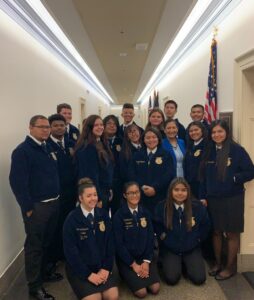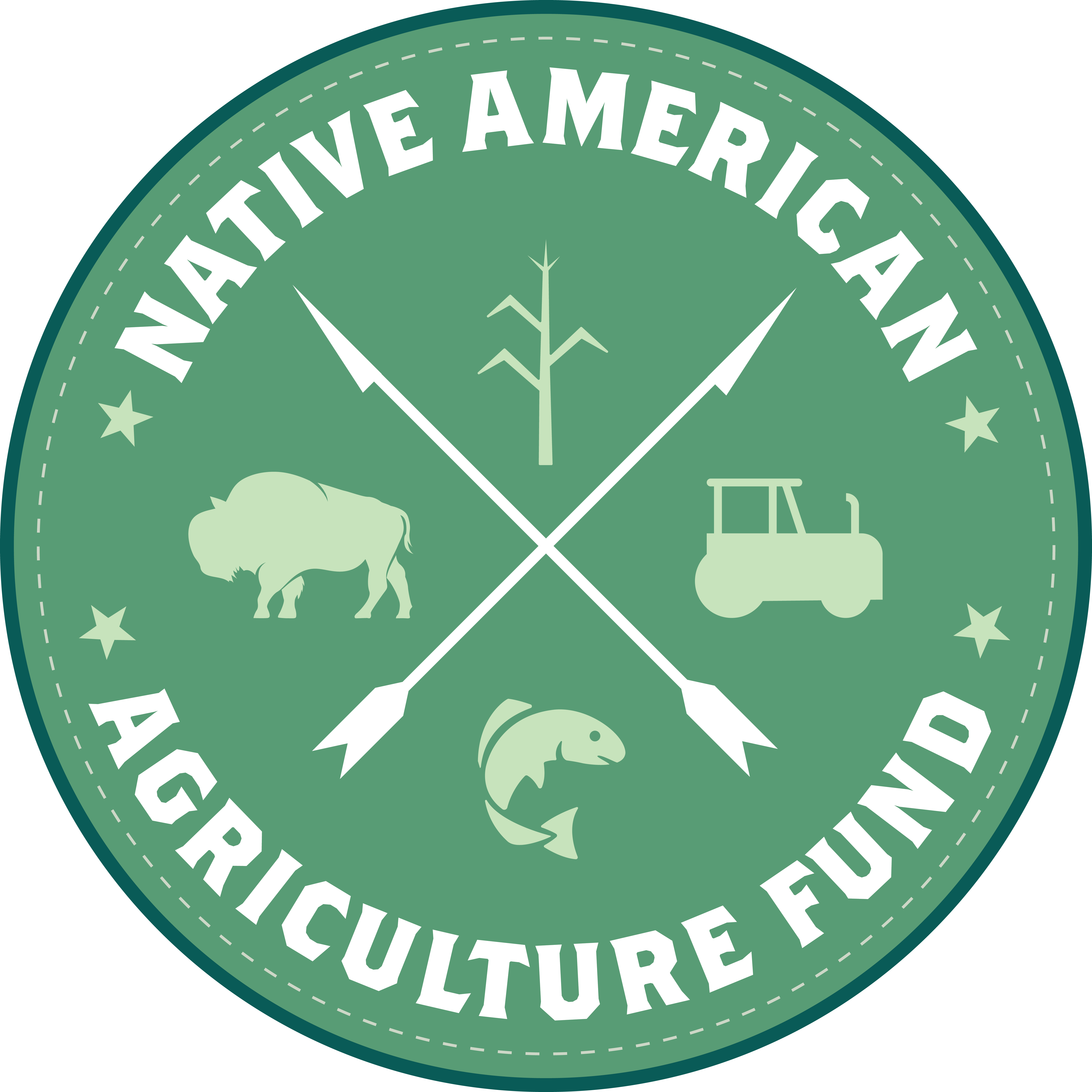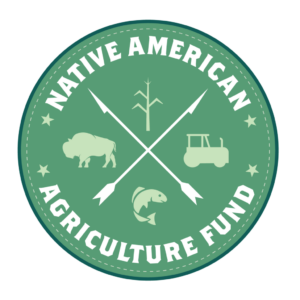[vc_row][vc_column][vc_column_text]Spotlight #1
July 2019 | Washington, D.C.
Last week the Native American Agriculture Fund (NAAF) staff accompanied fifteen Native FFA members representing five states and nine tribal nations to attend National FFA’s Washington Leadership Conference (WLC). WLC is a five-day conference that operates on a curriculum based on the principles of: “ME, WE, DO, SERVE” and inspires students to create a “Living to Serve” community service plan for their home communities. The overall goal of the conference is for students to become “an engaged citizen who can make a measurable positive difference in their community.”

Pictured standing above: Philip Revels (Lumbee), Ian Floyd (Lumbee), Anthony Hernandez (Crow & Shoshone-Bannock), Nevaeh Hoffman (Standing Rock & Santee Sioux), Ayden Belille (Fond du Lac Chippewa), Julius Locklear (Lumbee), Kelly Lee (Navajo), Stephanie Guajardo (Navajo), Shain Beymer (Confederated Tribes of Warm Springs), DC Stewart (Crow), Anthony Brown (Navajo/Crow), Carly Jo Sells (Navajo), JB Bruised Head (Blackfeet). Kneeling: Bethany Blackman (Lumbee), Jesenia Perez-Garcia, and Xariya Holliday (Confederated Tribes of Warm Springs).
Over the course of the week these inspiring Native students had the opportunity to network with other FFA members from across the United States, while also experiencing some of the renowned monuments, museums, and historical sites D.C. has to offer. In addition to learning and serving, they visited the Arlington National Cemetery, witnessed the Changing of the Guard at the Tomb of the Unknown Soldier, toured the Holocaust Museum and the National Museum of the American Indian (NMAI), and experienced the Peruvian festival that took place at NMAI that weekend.
The students were invited to participate in the USDA FFA Alumni and Supporters Breakfast and USDA Secretary Perdue acknowledged their presence in his remarks. They met with USDA staff from the Office of Tribal Relations, the USDA Ag Youth Organization, the USDA 1994 Tribal Land-Grant Colleges and Universities Program, and the U.S. Forest Service. While interacting with representatives from the U.S. Forest Service, they had a surprise visit from Under Secretary for Natural Resources and the Environment Jim Hubbard.
The students visited Capitol Hill for invited Congressional office meetings and met with delegates from the offices of Sen. Merkley (OR), Sen. Schatz (HI), Sen. Smith (MN), and Sen. Tester (MT), and with staffers from the House Agriculture Committee. Their visit with New Mexico’s Rep. Deb Haaland (Pueblo of Laguna) was very important as she is one of the first two Native women in Congress.
NAAF recognizes the important role Native youth have now in supporting all aspects of Native agriculture, and their role in the future as they step into management of Native farms, ranches and food businesses throughout the country. Their voices matter and their experiences alongside other young agriculturists is important.[/vc_column_text][/vc_column][/vc_row]


